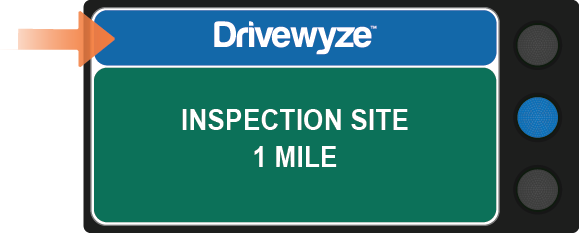
DALLAS, July 11, 2018 – Intelligence Transportation Systems Society of Canada (ITS Canada) recently recognized the Alberta Partners in Compliance (PIC) with a national award for its use of smart transponders to expand weigh station bypass opportunities for the Alberta trucking industry.
ITS Canada presented Alberta PIC with its top award for projects at three levels, including the larger metropolitan/provincial/federal level, at its annual conference in Niagara Falls, Ontario, in mid-June. Alberta PIC earned the top award at the larger metropolitan/provincial/federal level.
“This award honors the Alberta Justice and Solicitor General Commercial Vehicle Enforcement Branch (CVEB), Alberta Transportation, and the Alberta Motor Transport Association for their forethought in adopting a smart transponder-based system, which allows them to sustainably grow the Alberta PIC program bypass,” said Janneke van der Zee, general manager of ITS Canada. “It’s clear from the results that provincial officials made a good decision in choosing this technology for providing weigh station bypasses. It fulfills ITS Canada’s objective in achieving the highest and best possible use of the latest technology to improve efficiency of the Canadian highway transportation system and the safety of the motoring public.”
Brian Heath, president and CEO of Drivewyze, said as a result of adding Drivewyze, the number of sites offering weigh station bypass in Alberta has nearly tripled from 23 to 56. In the month of May alone, nearly 56,000 participating PIC member trucks received weigh station bypasses from Drivewyze in Alberta. Based on his company’s own studies of average weigh station pull ins, Heath estimates that those bypasses returned 1,134 hours of driving time to the drivers of participating Alberta fleets and saved their companies more than $126,000 in avoided fuel and operational costs.
“Our technology can stand on its own or as an addition to the existing technology commercial vehicle enforcement agencies use in offering weigh station bypass,” Heath said. “By utilizing the cellular network and the GPS-based geo-fencing capabilities Drivewyze offers, the Alberta PIC program not only delivers more bypass opportunities at more locations for members, but also opens the door to other future freight mobility and safety initiatives.
“We’re working on providing Alberta PIC members access to driver safety notifications and to electronic inspections in the near future,” Heath added.
Alberta PIC Director Andrew Barnes said members are excited to hear drivers may soon receive safety notifications alerting them to upcoming hazards such as curves in the road where high incidences of rollovers have occurred in the past. And electronic inspections will be a great opportunity for members to improve their safety scores without having to instruct drivers to pull into the weigh stations and ask for them, Barnes said.
“I think this award confirms and reinforces the belief we held 18 months ago that partnering with Drivewyze would provide our members a great opportunity to leverage the work they do in meeting the program requirements,” he added. The Alberta PIC program is operated by the Alberta Motor Transport Association under a partnership agreement with Alberta Transportation and the Alberta Justice and Solicitor General CVEB. To achieve PIC membership, carriers must undergo a successful national safety code audit, achieve certification, and complete quarterly safety reports.
“With all of the additional technology truck fleets have had to install with recent changes in HOS compliance, it’s good to see how Drivewyze can help PIC members and their drivers further leverage that technology as they work to maintain Alberta’s highest roadway safety ranking,” Barnes said.
While Drivewyze helps safe motor carriers save time and money, Jacquie Daumont, acting chief of the Alberta Justice and Solicitor General, Commercial Vehicle Enforcement Branch, said it also helps her enforcement officers be more efficient. This greater efficiency allows them to focus their attention on those carriers needing it, Daumont said.
“The addition of Drivewyze will help our commercial vehicle inspection officers automate the processing of PIC members, so they can conduct inspections while still lowering the volume of trucks entering and exiting weigh stations,” she added. “As a result, they’ll be better able to deal with ever-increasing truck traffic in the province.”